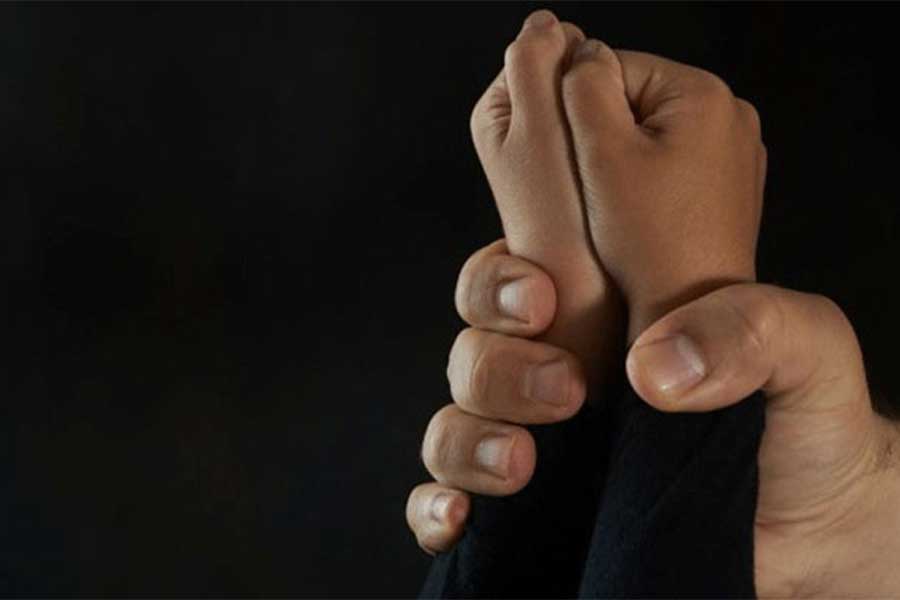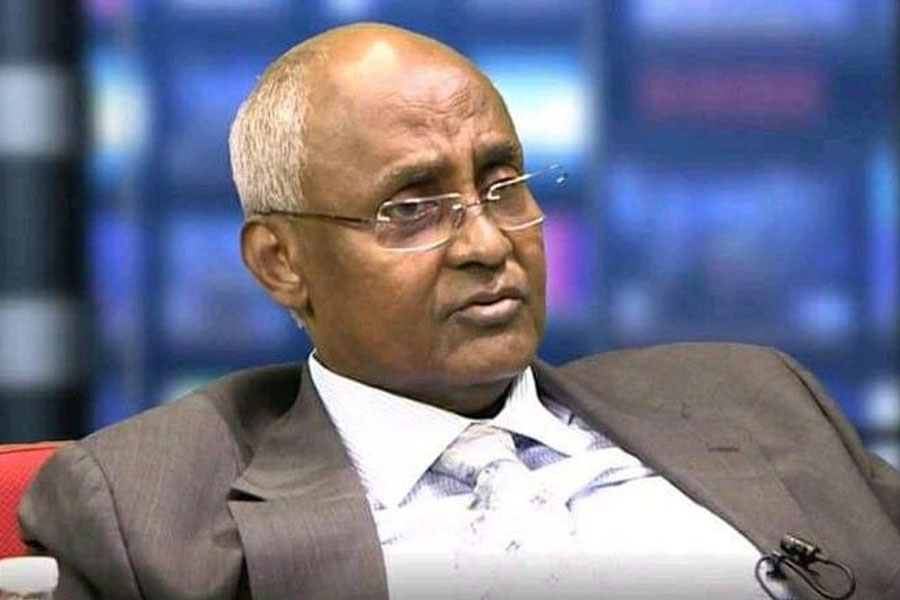
View From Arada | Jan 25,2020
Apr 17 , 2021.
There is not a facet of life in Ethiopia today that is not convulsed by the moral crisis brought on by a bleak political situation. Rare are conversations that are not overwhelmed by discussion of conflict and war; or a sense of purpose and will that is not shaken by the uncertainty of the country's viability and the state.
To any witness of the goings-on in the country, this should not be surprising. Ethiopia has been in the fragile state index for a long time. There is now a justifiable fear it may soon join the list of failed states.
Two features define the status of a failed state: the government cannot project authority over the people and the territory; and, it is unable to protect its boundaries. Civil wars, genocide, and ethnic violence become regular occurrences in a failed state where the political or economic systems are unstable. The state cannot secure the physical wellbeing of all its citizens.
What is unsettling in today's Ethiopia is not just reports of the violence; it is the vivid photos and the video clips that surface in the digital space. They are not merely scenes of death but what seem like relentless races to the bottom for extreme brutality. Making them all the more tragic is that innocent civilians keep taking punishment for being in the wrong place at the wrong time or for speaking a language that makes their political views suspect, if not for the places their ancestors occupy in the historical memories of their political opponents.
Add to this the fatality of a new wave of the Novel Coronavirus (COVID-19), galloping inflation, and the increasing bellicosity of Egypt, whose president recently promised “inconceivable instability” to any perceived reduction of water from the Nile to his country. It is a combination of crises that is too devastating to comprehend, especially for those that live, work and raise children in this country.
In all of this, there remains a political elite whose only offer is to blame its opponents for the crisis unfolding. Lacking a political imagination to offer a vision of political settlement and social cohesion, the elites make up for it by doubling down on the path they have already taken. It is like suggesting that a rotten apple could be made better by spoiling it even further.
The consequence for the political space is that centrist voices have been emasculated to the point that they have nearly entirely ceased to engage. Voices of reason and calls for moderation have been dwarfed. Cries for dialogue, cession of hostilities, and mediation are considered as naive, both-side-ism, or even advocacy for the status quo by rejecting armed revolution.
But what does not get as much attention is that, if anything is clear, no one group in Ethiopia will get the full satisfaction of what they are demanding. Only concessions are available, which, no doubt, will leave both sides unsatisfied, but, on the positive note, will avoid the constant blood-letting. Those with state power and outside of it must be aware by now that the struggle for decisive victory only leaves a long trail of dead bodies, orphaned children, and widowed women. The latter if they survive rape and sexual assault.
Some find it hard to believe, but it could yet be worse.
Of urgency should be the avoidance of protracted wars and conflicts. As Samuel Huntington argued in his seminal work “The Clash of Civilisations,” conflicts fought along the fault lines of identity will not have the finality that wars demarcated along ideological, territorial, or economic lines used to have. They are seemingly unending – a scenario that should be averted by marshaling all sources of reason. Conflicts over indivisible matters such as identities are not matters that can be vanquished as those in the arena of divisible matters such as resources.
Bearing witness to this is the International Committee of the Red Cross (ICRC). By 2019, it had spent an average of 42 years for the 10 largest operations it has been involved in across the world. These years are a time when every development outcome is, more or less, frozen if not actively regressing.
“Wars, and their all-consuming destructive force, are becoming longer, more intractable and less likely to be resolved politically,” reads a blog on ICRC website, headlined, “Protracted Conflicts: The enduring legacy of endless war.”
In Ethiopia, what is in the offing with the privatisation and regularisation of violence is the weakening of the state’s monopoly over violence and its state. The alternative is to re-consolidate it through an inclusive political settlement negotiated by the country's political, economic, and spiritual elites. There would be those that can not fathom re-integration into the state. And there would be their ideological opponents that will balk at the very idea of tolerating once again those they have deemed no longer tolerable. But both should find the courage in their conviction to admit that this is the only way to avert mutually assured distraction.
Re-imagining the possibility of coexistence could come through a constitutional convention where groups at war can use it as a platform for dialogue. Such a process may give breathing space and time. The caveat is that all political contenders need to swallow their pride and outrage to cease active conflict and come back to the negotiating table.
It is a promising start to have religious institutions lead a national prayer on Ethiopia's political situation and a horrifying prospect. But the optimism of a semblance of inter-religious tolerance, at least at the highest levels, can be built on further, especially where the war in the Tigray Regional State is concerned. Fought along identity lines between groups that share a common faith (including the Eritreans), a conference led by spiritual leaders representing each side could be a worthy beginning.
Understandably, it has not helped their standing that leaders of the main religious denomination were complicit in Tigray's war. They have lost credibility in the eyes of many on the receiving end of the gruesome brutality of this war. They have lost the courage of their faith to speak out against the atrocities unleashed in the country; places such as Western Wellega and Benishangul-Gumuz state stand out prominently, testifying to their silence.
However, if the spiritual leaders fail to stand up and be counted on in a moment of extreme difficulty, anxiety and insecurity, who else can be relied upon?
The situation becomes so desperate, finding solace from any other social organisation, but the religious institutions put people in a hapless situation.
A page could be taken from the Catholic Church’s role in mediating political conflict in Latin American countries such as Bolivia, El Salvador and Guatemala. In Mozambique, the Community of Sant'Egidio, a Catholic association, played an indelible role in mediating a 15-year long civil war that ended in the early 1990s.
Similarly, an inter-religious conference of spiritual leaders could reclaim the moral high ground for reconciliation, tolerance and coexistence. This would be no small feat in a country where religion – as opposed to Western Enlightenment ideals of reason, individualism and the rule of law as an end in themselves – provides the moral foundation for daily living.
The crisis in Ethiopia - as has slowly become evident - is also a moral one, a trial in values. The forces of reason should be marshaled and the courage gathered within the political elite to avert the protracted suffering of over 100 million people. What could go terribly wrong when political leaders miscalculate and make ill-fated choices is demonstrated with Tigray's civil or uncivil war. Diplomats, elites and elders have failed so far. Spiritual leaders can be the exception if they have the will.
PUBLISHED ON
Apr 17,2021 [ VOL
22 , NO
1094]

View From Arada | Jan 25,2020

Commentaries | Oct 26,2019

Obituary | Oct 03,2020

Covid-19 | Apr 25,2020

Radar | May 18,2019

Sunday with Eden | Oct 24,2020

Fineline | Oct 03,2020

Sunday with Eden | Jul 20,2019

Editorial | Oct 12,2024

Sunday with Eden | Oct 31,2020

Photo Gallery | 174751 Views | May 06,2019

Photo Gallery | 164971 Views | Apr 26,2019

Photo Gallery | 155214 Views | Oct 06,2021

My Opinion | 136724 Views | Aug 14,2021

Dec 22 , 2024 . By TIZITA SHEWAFERAW
Charged with transforming colossal state-owned enterprises into modern and competitiv...

Aug 18 , 2024 . By AKSAH ITALO
Although predictable Yonas Zerihun's job in the ride-hailing service is not immune to...

Jul 28 , 2024 . By TIZITA SHEWAFERAW
Unhabitual, perhaps too many, Samuel Gebreyohannes, 38, used to occasionally enjoy a couple of beers at breakfast. However, he recently swit...

Jul 13 , 2024 . By AKSAH ITALO
Investors who rely on tractors, trucks, and field vehicles for commuting, transporting commodities, and f...

Oct 12 , 2025
Tomato prices in Addis Abeba have surged to unprecedented levels, with retail stands charging between 85 Br and 140 Br a kilo, nearly triple...

Oct 12 , 2025 . By BEZAWIT HULUAGER
A sweeping change in the vehicle licensing system has tilted the scales in favour of electric vehicle (EV...

A simmering dispute between the legal profession and the federal government is nearing a breaking point,...

Oct 12 , 2025 . By NAHOM AYELE
A violent storm that ripped through the flower belt of Bishoftu (Debreziet), 45Km east of the capital, in...